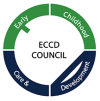About Us
Republic Act 10410 or the Early Years Act of 2013, as the primary agency implementing the government’s National ECCD System. The National ECCD System refers to and covers the full range of health, nutrition, early education, and social services programs and services for children aged 0 to 4 years old.
The Council is responsible for (1) establishing national standards, (2) developing policies and programs, (3) providing technical assistance and support to ECCD service providers, and (4) monitoring ECCD service benefits and outcomes.
Mandate
To implement the National Early Childhood Care and Development System of the Philippines by:
Promulgating policies and implementing guidelines for ECCD programs.
Establishing ECCD program standards that reflect developmentally appropriate practices for ECCD programs.
Developing a national system for the recruitment, registration, accreditation, continuing education and equivalency, and credential system of ECCD service providers, supervisors, and administrators to improve and professionalize the ECCD sector and upgrade quality standards of public and private ECCD programs.
Developing a national system of awards and recognition to deserving ECCD programs implementers and service providers.
Promoting, encouraging, and coordinating the various ECCD programs of the Department of Education, the Department of Social Welfare and Development, the Department of Health, and the National Nutrition Council.
Monitoring the delivery of services to the ECCD program beneficiaries nationwide. Evaluating and assessing the impact and outcome of various ECCD programs nationwide through an effective information system.
Developing a national system for early identification, screening, and surveillance of young children from age zero (0) to four (4) years.
Developing various support mechanisms that maximize public and private resources for implementing ECCD programs – giving high priority to the needy and high risk children from poor communities.
Providing funds to poor and disadvantaged community’s for the establishment and expansion of public ECCD programs, improvement of physical facilities, and for hiring ECCD service providers.
Promoting and encouraging private sector initiatives for the establishment of ECCD programs.
Providing guidelines for the conduct of solicitations from local and international civic organizations, and request private foundations to supplement available resources.
Performing other functions as the ECCD Council may deem necessary.
ECCD Council Journey






